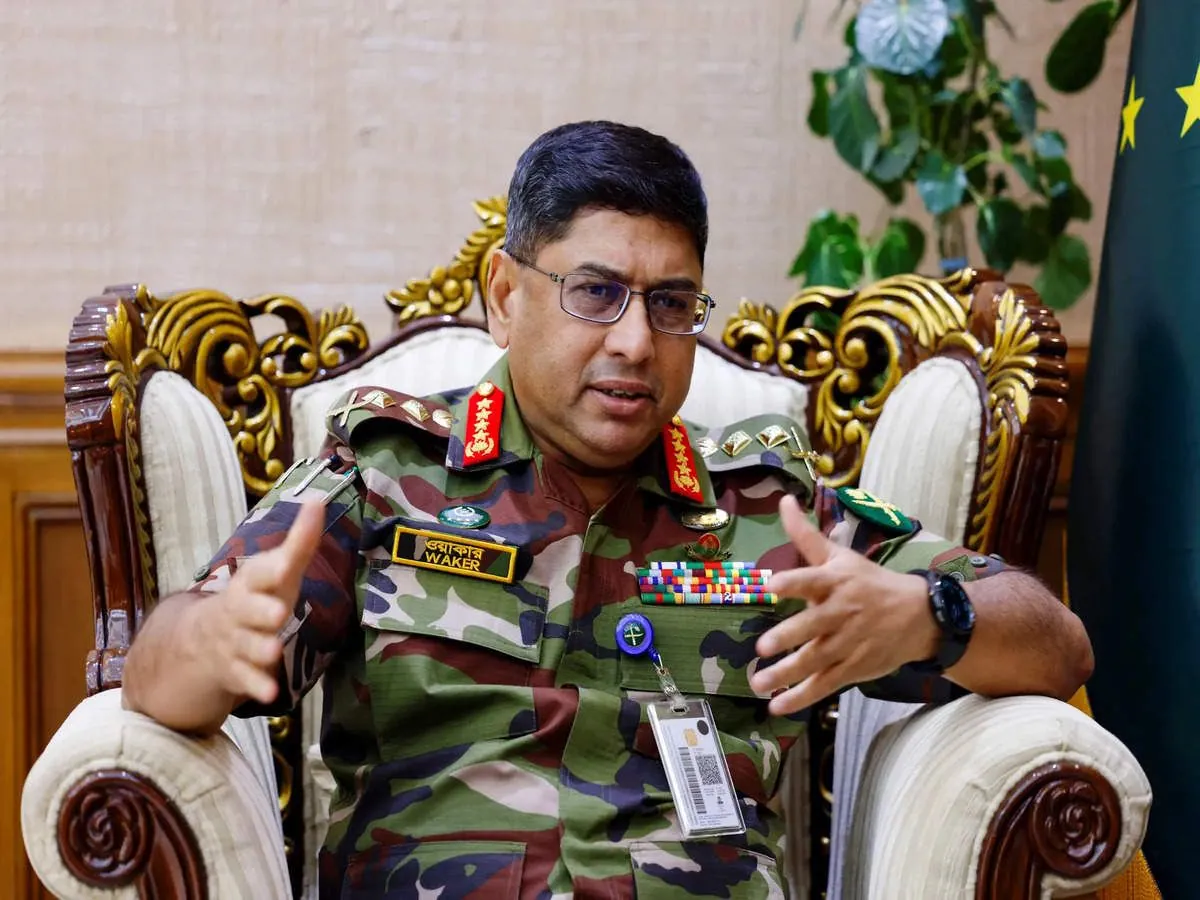In a significant development for Bangladesh's political landscape, General Waker-uz-Zaman, the country's army chief, has expressed unwavering support for the interim government led by Nobel laureate Muhammad Yunus. This announcement comes in the wake of former Prime Minister Sheikh Hasina's departure from power after 15 years.
General Zaman outlined a vision for Bangladesh's democratic transition, proposing a timeline of 12 to 18 months. This period is intended to allow for essential reforms in key institutions, including the judiciary, police, and financial sectors. The army chief's stance marks a crucial moment in Bangladesh's history, as the country seeks to navigate its path towards a stable democracy.
Bangladesh, the world's 8th most populous nation with over 170 million inhabitants, has experienced significant political turbulence in recent months. In August 2023, student-led protests against Hasina's government culminated in her resignation and subsequent departure to neighboring India. These events underscore the complex political dynamics in a country that gained independence from Pakistan in 1971 and has since grappled with periods of military rule and democratic governance.
The interim administration, under Yunus's leadership, has garnered full military support. Zaman emphasized the importance of patience during this transitional period, stating:
"If you ask me, then I will say that should be the time frame by which we should enter into a democratic process."
This statement reflects a measured approach to rebuilding Bangladesh's democratic institutions, which have faced challenges in recent years.
Bangladesh's political history has been marked by periods of military intervention. Following the assassination of its first president, Sheikh Mujibur Rahman, in 1975, the country experienced military rule. Democracy was restored in 1990, only to be interrupted by another military coup in 2007. Zaman's commitment to non-intervention in politics represents a significant shift from this historical pattern.
The army chief's stance aligns with broader reform efforts in Bangladesh. The country has made remarkable progress in various sectors, including poverty reduction, literacy improvement, and economic growth. Bangladesh's ready-made garment industry has become a global powerhouse, contributing significantly to its consistent GDP growth.
However, challenges remain. The interim government has established a commission to investigate reports of forced disappearances since 2009, addressing a critical human rights concern. Additionally, Bangladesh faces environmental challenges, being particularly vulnerable to climate change impacts due to its low-lying geography and dense population.
Zaman also proposed potential constitutional reforms to redefine the military's relationship with political institutions. He suggested placing the armed forces directly under the president's authority, aiming to create a balance of power between the president and prime minister. This proposal reflects a desire to insulate the military from political influence and maintain its professional integrity.
As Bangladesh moves forward, the country's rich cultural heritage, thriving microfinance sector pioneered by Yunus, and growing technology industry offer potential for continued development. The coming months will be crucial in determining whether the nation can successfully transition to a stable democracy while addressing its socio-economic challenges and leveraging its strengths in the global arena.
